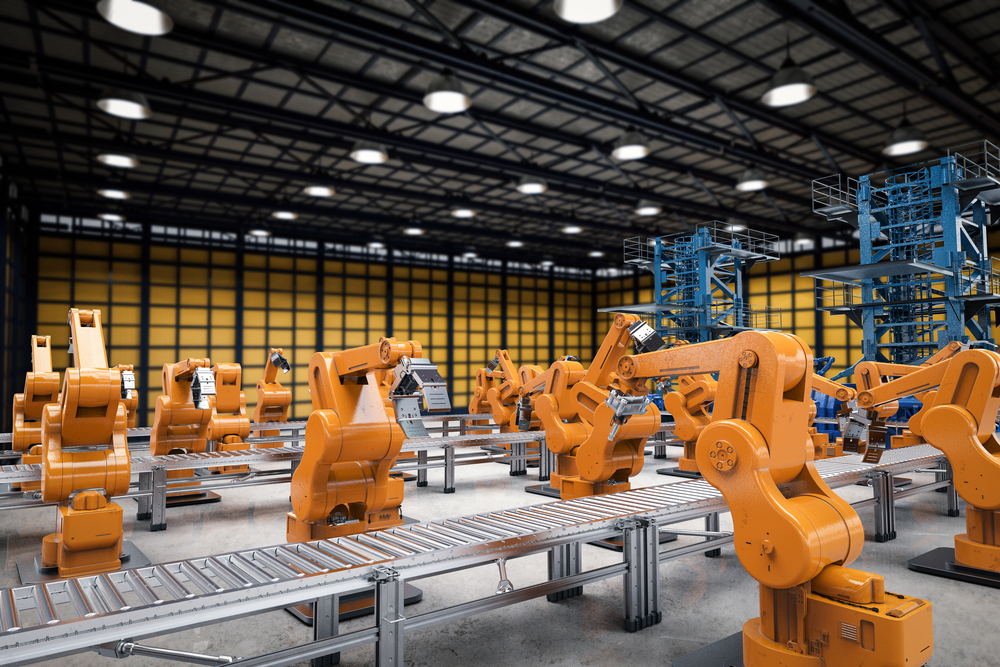APAC region to lose 63 million jobs to automation by 2040
Five largest countries in the area more at risk of robots replacing workers compared to Europe and US, according to Forrester


Sign up today and you will receive a free copy of our Future Focus 2025 report - the leading guidance on AI, cybersecurity and other IT challenges as per 700+ senior executives
You are now subscribed
Your newsletter sign-up was successful
The five largest economies in the Asia Pacific region are more at risk of physical robot-based automation than both Europe and North America.
That's according to a Future of Jobs Forecast from Forrester which suggests that by 2040, 63 million jobs in India, China, South Korea, Australia and Japan could be lost to automation, with industries such as construction and agriculture set to be hit hardest.
Forrester's Future Of Jobs Forecast, which looks at the state of automation from 2020 to 2040, suggests that the green economy will potentially help to offset some job losses as more governments commit to carbon neutrality. This will include more renewable energy, green buildings and smart cities developed by 2040.
However, even with more green roles, the IT industry, particularly in the Asian Pacific area will see 13.7 million jobs lost to automation.
"To prepare for the changes brought on by automation, the five largest economies in APAC will have to radically rethink their workforce strategies," said Michael O'Grady, principal forecast analyst at Forrester. "While each economy faces its own challenges, common focus areas such as hiring more female workers can help offset working population declines. In addition, investing in STEM education, technology workforce training, and protecting the rights of freelance workers will become of utmost importance."
Automated jobs will impact each country differently, according to the report. For instance, Australia will see a similar situation to the US, with 11% of jobs lost to automation by 2040. China, in contrast, will see 7% of jobs lost to automation, though some 3.8 million additional new jobs will be created within the next two decades.
India, which has a relatively young workforce, according to the report, will add 160 million new workers over the next 20 years. However, 69% of these are under threat of automation, making job creation a main priority for the country.
Sign up today and you will receive a free copy of our Future Focus 2025 report - the leading guidance on AI, cybersecurity and other IT challenges as per 700+ senior executives
Japan has the opposite problem as it has an ageing workforce, according to the report. Coupled with its low birth rate, the country's workforce is set to decline by almost one-third. Similarly, South Korea's ageing working population and its dependency on the construction and agriculture industries will be highly susceptible to automation. The report suggests that 23% of South Korean jobs will be automated over the next 20 years.
Bobby Hellard is ITPro's Reviews Editor and has worked on CloudPro and ChannelPro since 2018. In his time at ITPro, Bobby has covered stories for all the major technology companies, such as Apple, Microsoft, Amazon and Facebook, and regularly attends industry-leading events such as AWS Re:Invent and Google Cloud Next.
Bobby mainly covers hardware reviews, but you will also recognize him as the face of many of our video reviews of laptops and smartphones.
-
 Channel your innovation: Why IT partnerships are essential for the future of retail
Channel your innovation: Why IT partnerships are essential for the future of retailIndustry Insights A shared understanding and commitment to overcoming hurdles is key
-
 Pulsant unveils high-density data center in Milton Keynes
Pulsant unveils high-density data center in Milton KeynesNews The company is touting ultra-low latency, international connectivity, and UK sovereign compute power to tempt customers out of London
-
 Automate personalization with AWS
Automate personalization with AWSWhitepaper How marketers can automate, deliver, and analyze billions of personalized messages and offers per day
-
 How a hyper-automation platform can drive value for your bank
How a hyper-automation platform can drive value for your bankWhitepaper Five ways automated processes can drive revenue and growth
-
 Boomi snaps up former MuleSoft executive as APJ channel lead
Boomi snaps up former MuleSoft executive as APJ channel leadNews Global software veteran Jim Fisher will work to expand the company’s channel operations across the region
-
 Appian wants to be the AI company for AI skeptics
Appian wants to be the AI company for AI skepticsAnalysis The firm outlines its AI strategy at Appian World 2023 while using ChatGPT and Midjourney to create scripts and imagery for keynote presentations
-
 Why Microsoft Teams has only just launched in China
Why Microsoft Teams has only just launched in ChinaNews The tech giant has officially launched Teams via its local partner in China, after it was launched globally in 2017
-
 UK startup's Equinix deal marks step towards broad quantum computing access
UK startup's Equinix deal marks step towards broad quantum computing accessNews Businesses around the world will be able to use its quantum computing as a service platform through Equinix
-
 MI5 to establish new security agency to counter Chinese hacking, espionage
MI5 to establish new security agency to counter Chinese hacking, espionageNews The new organisation has been compared to GCHQ’s NCSC, and will provide companies advice on how to deal with Chinese companies or carry out business in China
-
 UK set to appoint second-ever tech envoy to Indo-Pacific region
UK set to appoint second-ever tech envoy to Indo-Pacific regionNews The role will focus on India after Joe White was made the first technology envoy, a role focused on the US, in 2020
